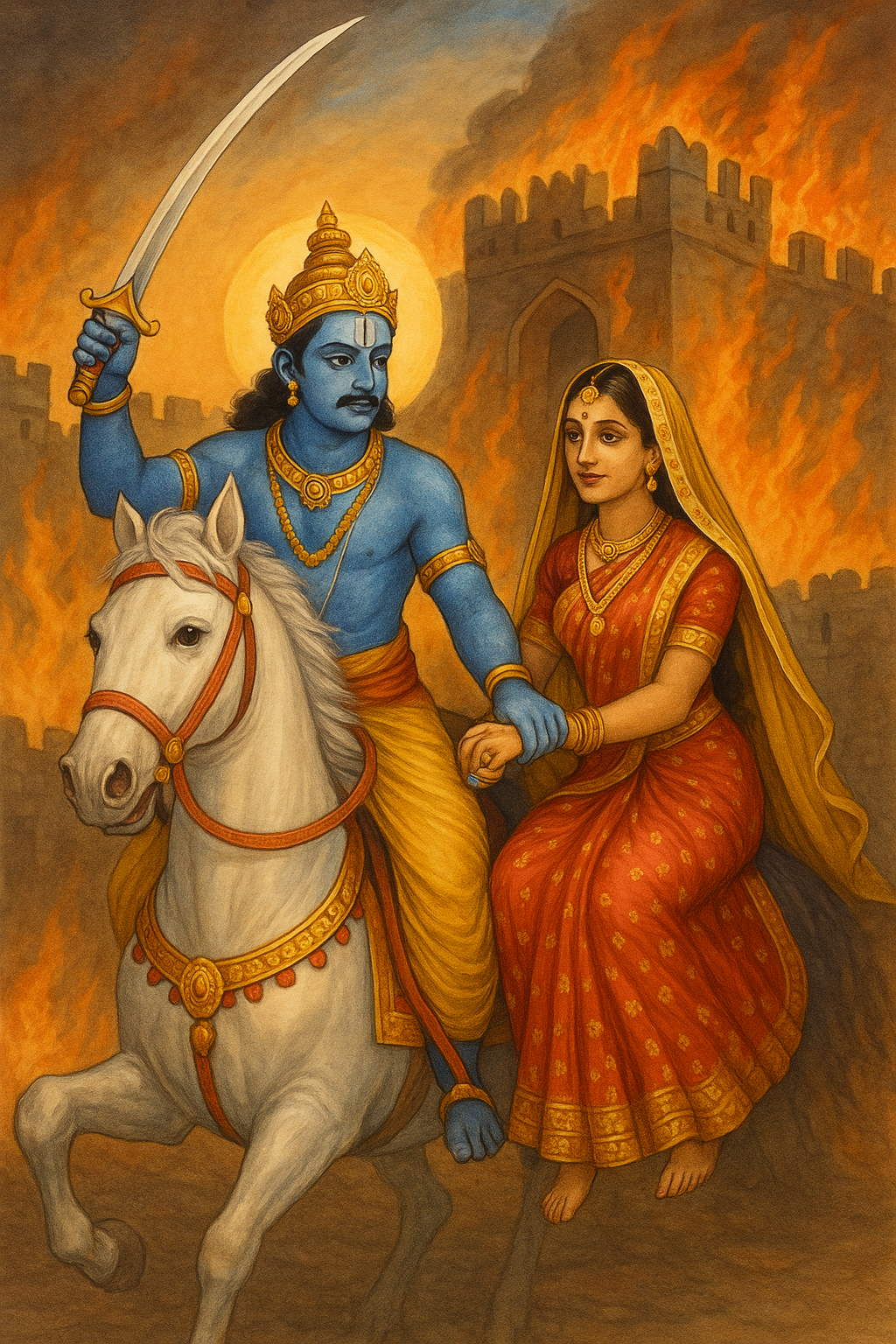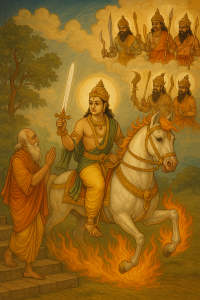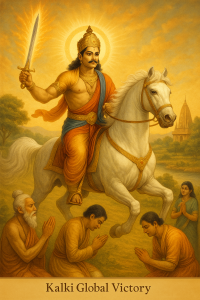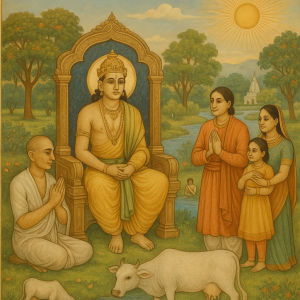The Captive Princess in Simhala
In the mighty southern kingdom of Simhala, ruled by the arrogant and tyrannical king Śaśidhvaja, lived a radiant and virtuous princess named Padmāvatī. Though born in a noble brāhmaṇa family, her unmatched beauty and serene devotion to Lord Nārāyaṇa became known far and wide. Her heart overflowed with dharma, her words were soft like sandalwood, and her gaze carried the calm of a yoginī.
But fate, it seemed, tested her strength. Coveting her, Śaśidhvaja abducted her, determined to force her into marriage. Though imprisoned in the king’s inner chambers, she remained untouched—her mind absorbed in prayer, her heart anchored in Lord Nārāyaṇa.
Kalki’s Compassion Awakens
When news of her captivity reached the holy circles of sages and pilgrims, it swiftly traveled to Śambhala—the sacred village where Kalki, the final avatāra of Lord Nārāyaṇa, resided. Hearing of Padmāvatī’s distress, Kalki’s heart, though fixed on destroying evil kings, now surged with a different emotion—divine compassion.
“This is not merely a battle for justice,” He declared. “It is a rescue of the soul held captive by adharma.”
Mounting His celestial white steed Devadatta, armed with divine weapons glowing like fire, Kalki sped toward Simhala like a comet across the heavens.
The Rescue of Padmāvatī
The gates of Simhala roared open as Kalki descended like a storm. Śaśidhvaja’s army—a sea of armored elephants, chariots, and archers—rushed forward with fury.
- With one sweep of His sword, Kalki struck down the corrupt generals.
- His fire-tipped arrows scorched siege engines to ashes.
- The thunderbolt in His hand shattered the fortresses of illusion and pride.
Piercing through walls of resistance, Kalki reached the palace interior. There, in a lotus posture, sat Padmāvatī—her body weary, but her soul unwavering. The moment their eyes met, a divine recognition stirred within her heart: “He is the One I have always known.”
Kalki gently said,
“O noble one, I have not come to take, but to give. Rise now—your freedom is here.”
With divine dignity, He took her by the hand, lifted her onto Devadatta, and together they departed the city of darkness. Behind them, Simhala trembled—its injustice scorched, its arrogance humbled.
Divine Marriage of Lord and Devotee
Upon returning to Śambhala, Kalki and Padmāvatī were wed in a grand ceremony, under the pure canopy of Vedic rites. The air was filled with mantras and celestial music. Saints, sages, and even the gods offered blessings, recognizing Padmāvatī as a partial manifestation of Lakṣmī-devī Herself.
Their union was not driven by worldly desire but by divine purpose. It symbolized the eternal relationship between the Lord and the jīva—the soul seeking shelter, and the Lord offering divine protection and love.
Lessons to Be Learned
- The Lord never forgets His devotee, even if she is hidden in the shadows of suffering.
- Marriage in dharma is not merely social, but a sacred cooperation in fulfilling divine destiny.
- Kalki’s sword is not only for punishment—it is wielded for compassion and rescue as much as for justice.
- A devotee’s unwavering faith, even in captivity, draws the Lord to their side in due time.
Origin of the Story: Kalki Purāṇa, Chapters 5–6 – Describing the rescue of Padmāvatī by Lord Kalki and their sacred marriage.



